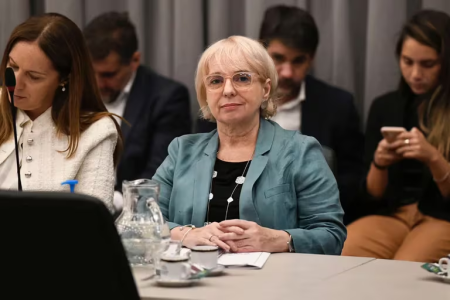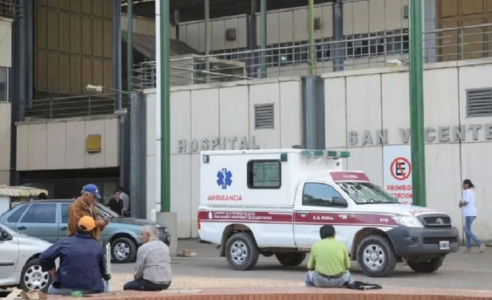All the Answers
Well-known member
The PRO presented a project to require medical coverage insurance for foreigners entering the country - Infobae

Source:

El PRO presentó un proyecto para exigir un seguro de cobertura médica a los extranjeros que ingresen al país
La diputada Silvana Giudici propuso que los visitantes estén cubiertos frente a contingencia de atención sanitaria
May 10, 2024
Deputy Silvana Giudici proposed that visitors be covered in the event of a health care contingency

The PRO deputy, Silvana Giudici, presented a project to make it mandatory for foreigners to contract private health insurance
The national deputy of the PRO, Silvana Giudici , presented a bill that proposes that foreigners entering the country must prove that they have current private health insurance that covers all of their eventual health expenses.
The initiative has the support of several legislators from the Macri party. The people who will be covered, if the rule is approved, covers trips for tourist reasons , business trips , work trips or temporary residences .
“ The Argentine health system, of quality and professionalism, has always been a mecca for millions of citizens from other countries in the region. The excellent conditions of care in terms of technology, innovative practices and medical quality generated an important migration for years in order to access health services provided by Argentine public hospitals, whose costs are exclusively supported by the system, that is, with the budgetary resources that originate from the taxes paid by the citizens of our country,” said the national legislator.
With this legislation, any medical, dental, or surgical procedure of any nature - in the case of requiring attention from the Argentine public health service - must be covered by said assistance insurance - with the exception of emergency care, accidents or emergencies with risk of life that will continue to be free .
The bill is accompanied by deputies Sergio Capozzi, Martin Yeza, Jose Nunez, Gerardo Milman, Damian Arabia, Karina Bachey, Sofia Brambilla, Anibal Tortoriello and Martin Ardohain .
As reported by the deputy, the measure addresses the situation of a public health system that is under excessive pressure and budgetary resources are scarce, which generated a deficit in care capacity, availability of beds and increasingly pressing inputs.
The initiative seeks to emulate what was done by provincial governments bordering other countries, which implemented mechanisms to charge foreigners for their health systems. These payments are applied in cases where there is a lack of reciprocal care agreements between countries.

The San Vicente hospital, in the city of Orán, province of Salta, had a high flow of health tourism
Salta was one of the districts. Recently, the province took stock of these measures two months later. “Before we had the hallways full of patients, and today we are quite comfortable with care. “ Last month, from 3,300 patients who were treated, today we have dropped to 60 patients, in Oran . If we put the value of the consultation, which is $6,600, we would have to be earning more than 23 million pesos, just in consultations,” explained the Minister of Health of Salta, Federico Mangione .
Giudici's entourage assures that it is necessary to generate innovative tools to continue providing quality medical care in our territory, both to Argentine citizens and foreigners. With the implementation of private assistance coverage insurance to be required at airports or borders to ensure that all tourists or foreign visitors have the resources to cover medical expenses during their stay, we will be able to reduce the burden on the public system. The project provides for the presentation of credentials at immigration posts along with the passport.
Giudici's explanation defended the proposal by stating that "the National Constitution is our guide, this tool does not violate any of its guarantees provided for foreigners who set foot on our soil, but rather protects the rights of Argentines and foreigners with equity." “Those who can pay it, wherever they come from, will have their original coverage and the Argentine public system will only cover emergencies that involve risk of life,” he stressed.
“ It is important in a country with 47% poor to make the system more equitable by prioritizing resources to cover the enormous internal needs in terms of health care,” Congresswoman Giudici concluded.

